TEL AVIV, Israel—Since news of the killing of longtime Hezbollah leader Hassan Nasrallah began spreading across the Middle East, spontaneous celebrations broke out in places like the rebel-held city of Idlib, Syria—locales where the terror group had fought and built its reputation for ruthlessness.
“I’ve never seen Syrians celebrating in such a way. I saw women and men in their cars celebrating, distributing candy, and calling for freedom,” Sara Kassim, an Idlib-based journalist who has reported on Hezbollah’s atrocities in cities across Syria, told The Dispatch. “The Syrians here in northern Syria suffered greatly because of Hezbollah and because of Hassan Nasrallah.”
Nasrallah died on Friday in massive Israeli airstrikes on the terrorist group’s underground headquarters in Beirut. The operation followed a series of increasingly bold Israeli maneuvers to decimate the command structure and degrade the military capabilities of Hezbollah, which began firing on Israel on October 8 in solidarity with Hamas. With Nasrallah’s death, both the future of Hezbollah’s war against Israel and its position within its base in Lebanon are now in flux.
At the time of his assassination, the 64-year-old Shiite cleric had led the Iranian-backed organization for more than three decades, overseeing its growth from a fringe extremist faction into a well-trained terrorist army with an arsenal of between 150,000 to 200,000 missiles, rockets, and drones. Under Nasrallah’s reign, Hezbollah carried out a series of lethal terrorist attacks and fought in various wars in the Middle East and beyond, often on behalf of the Iranian regime. His death marks a major blow for Tehran, which views Hezbollah as its best insurance policy against a direct attack by Israel and the crown jewel in its network of regional proxies.
Nasrallah joined Hezbollah in 1982, the year that it was founded with the backing of Iran amid the 15-year Lebanese Civil War. One of the group’s first major operations was the suicide bombing of the U.S. Embassy in Beirut in April 1983, which killed 63 people—including 17 Americans—and injured 120 others. Later that year, Hezbollah plotted the truck bombing of a U.S. Marine barracks near Beirut, killing 299 American and French troops.
A passionate speaker with close ties to Iranian Supreme Leader Ali Khamenei, Nasrallah took the helm of Hezbollah in 1992 following Israel’s assassination of his predecessor, Abbas al-Musawi. In 1994, Hezbollah ordered the suicide bombing of a Jewish community center in Buenos Aires, Argentina, in an attack that killed 85 people. In 1996, it detonated explosives in an apartment building in Khobar, Saudi Arabia, murdering 19 U.S. military personnel and injuring more than 400 people.
Throughout his tenure, Nasrallah built out Hezbollah as a “state within a state,” with the group assuming control over things like social welfare and security to consolidate power and support, particularly in Shiite-majority southern Lebanon. He also systematically targeted his organization’s political rivals in the Lebanese government and, with Iran’s help, made Hezbollah into a formidable paramilitary force.
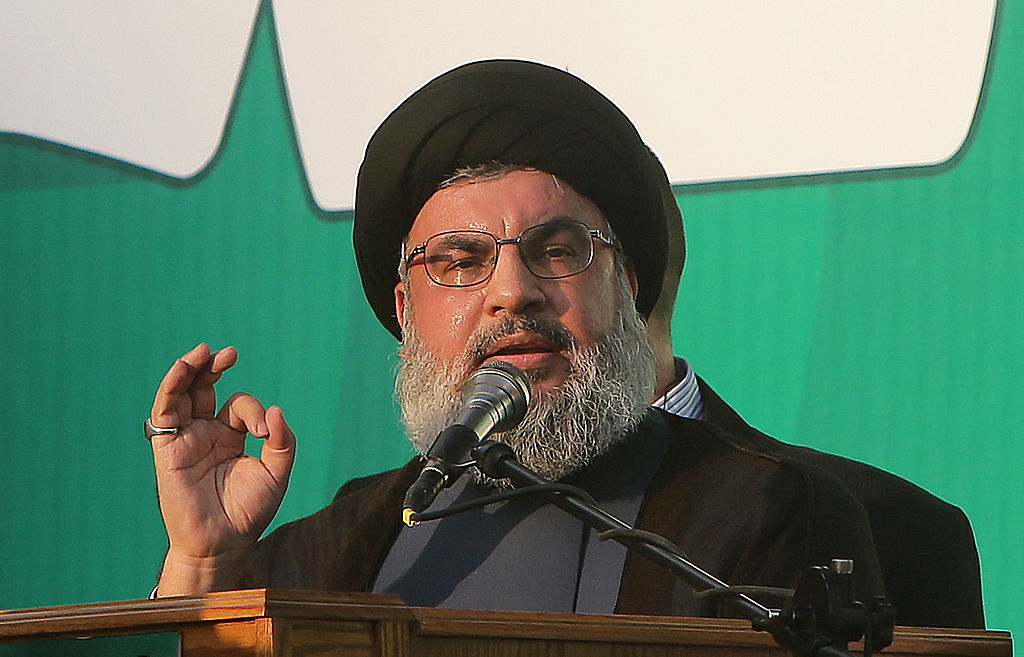
As the largest and most capable arm of Iran’s “axis of resistance” in the Middle East, the militants not only fight for Tehran but also recruit other proxies to its cause. “Lebanese Hezbollah has always led the charge. Whenever the Iranians needed to send out forces to help build up a resistance in the Middle East, they’d go to Lebanese Hezbollah,” said Phillip Smyth, an analyst whose research focuses on Shiite militias. “They have always been Iran’s proxy. They’ve always been not just its proxy, but a directly roped-in element” of the Islamic Revolutionary Guard Corps (IRGC).
After the Syrian civil war erupted in 2011, Nasrallah intervened on behalf of the brutal dictator Bashar al-Assad, ordering the mass deployment of Hezbollah’s fighters across Syria at Iran’s direction. There, the Shiite militia helped Syrian government forces lay siege to and recapture rebel-held cities and towns, often committing atrocities against the local populations with impunity.
The U.S. added Nasrallah to its list of specially designated global terrorists in large part due to his support for the Assad regime. Hezbollah under his leadership also forged its large transnational crime network, which includes enterprises such as arms smuggling, drug dealing, and human trafficking. It’s among the wealthiest terrorist groups in the world, bringing in well in excess of $1 billion a year.
“Hassan Nasrallah and the terrorist group he led, Hezbollah, were responsible for killing hundreds of Americans over a four-decade reign of terror. His death from an Israeli airstrike is a measure of justice for his many victims, including thousands of Americans, Israelis, and Lebanese civilians,” President Joe Biden said in a statement on Saturday, reiterating U.S. support for Israel’s self-defense. Just days earlier Biden had called for Israel and Hezbollah to come to a ceasefire agreement.
Like Hamas and Iran, Hezbollah under Nasrallah committed itself to the cause of ridding the Middle East of Israel. A virulent antisemite, the cleric often made fiery speeches in which he called for the end of the “Zionist” entity. “If [the Jews] all gather in Israel, it will save us the trouble of going after them worldwide,” he said in 2005. “If we searched the entire world for a person more cowardly, despicable, weak, and feeble in psyche, mind, ideology, and religion, we would not find anyone like the Jew. Notice, I do not say the Israeli,” he was quoted as saying on a separate occasion.
In 2006, Israel and Hezbollah went to war after the murder of eight Israeli soldiers and the kidnapping of two—a cross-border attack Nasrallah later said he regretted after a destructive month-long war. The conflict ended with United Nations Security Council Resolution 1701, which mandated Hezbollah’s demilitarization in southern Lebanon but was never enforced by the Lebanese government or the international community.
In the years that followed, Nasrallah further embedded his group in the communities of southern Lebanon and built out its arsenal in preparation for the next conflict, which began on October 8 when Hezbollah began firing on Israel following Hamas’ invasion and massacre in southern Israel.
In theory, the ongoing low-grade attacks would have shown Hezbollah’s support for another member of Iran’s axis while slowly degrading Israel’s defenses and will to fight through a war of attrition. But Nasrallah appears to have underestimated Israel’s resolve. The Israel Defense Forces (IDF) has slowly escalated its strikes throughout the conflict but particularly so in the last month, as it turned its attention to the north with Hamas effectively destroyed as a military body in Gaza.
In just weeks, a series of covert and military operations by Israel has decimated Hezbollah’s high command, culminating in the strike on the group’s subterranean headquarters on Saturday. In addition to assassinating Nasrallah, the operation—which involved tightly coordinated strikes using more than 80 tons of munitions to penetrate the bunker—killed other top figures in the terrorist organization, including Ibrahim Aqil, a senior commander of the elite Radwan forces, and southern front commander Ali Karaki, who had survived an Israeli airstrike earlier in the week.
And Israel’s attacks have persisted in the days since. The IDF said an airstrike in Beirut on Saturday killed Nabil Kaouk, deputy head of Hezbollah’s executive council. The military has also hit weapons smuggling routes in Lebanon and Syria and threatened to target Beirut’s international airport if Iran uses it for arms transfers. Israeli officials continue to signal that a ground incursion into southern Lebanon could be on the table to restore security to the border region.
What comes next remains unclear. As Hezbollah attempts to regroup, Iranian officials have vowed to respond to the attack, which also killed a senior IRGC official. The Iranian-backed Houthis have sought to attack Israel in recent days, including by firing a ballistic missile toward Tel Aviv on Saturday that was intercepted by air defenses.
But Israel’s increasingly aggressive approach complicates the picture. The assassination of Nasrallah demonstrated its pinpoint intelligence and willingness to escalate, while massive airstrikes on the Yemeni ports of Hudaydah and Ras Isa on Sunday night in retaliation for the Houthi attacks demonstrated its long reach. “We know how to reach very far, we know how to reach even farther, and we know how to strike there accurately,” IDF Chief of Staff Herzi Halevi said after the attacks in a thinly veiled threat to Tehran.
Given Nasrallah’s central role in shaping Hezbollah over the years and the elimination of most of its leadership, the direction the terror group may take now is uncertain. Some fear Israel lost the “devil you know” in killing the longtime leader. But to the victims of Nasrallah’s terrorist army, his death felt like justice served.
“I am one of those people who has suffered because of Hezbollah and because of Hassan Nasrallah,” said Kassim, who was expelled from her home city of Homs, Syria, after Hezbollah’s military intervention during the civil war. “We’re just happy because the person who is the reason behind all of this has gotten what he deserves.”
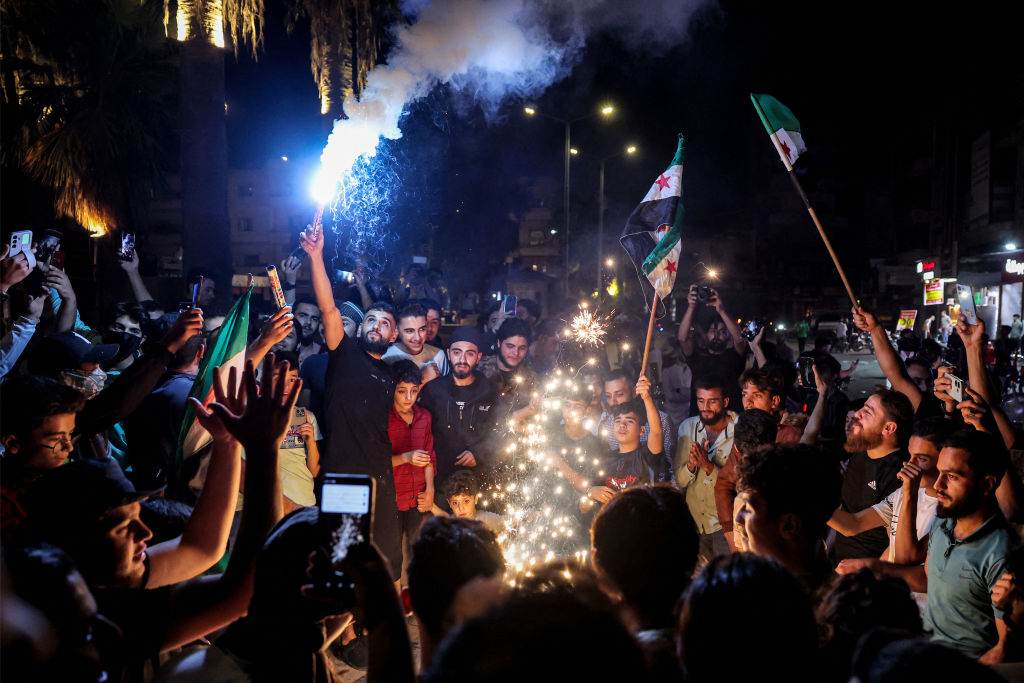

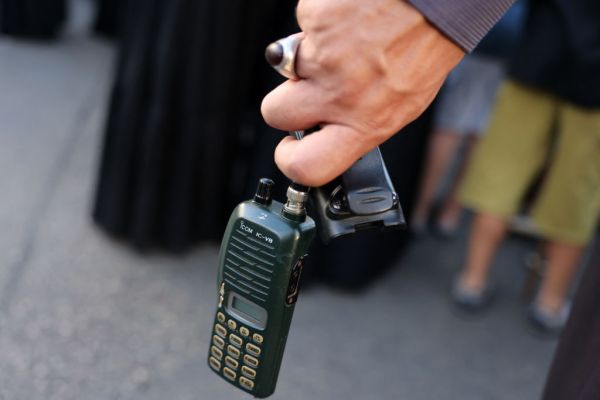
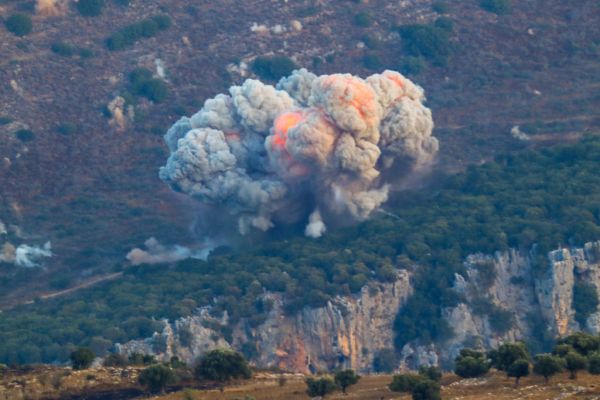
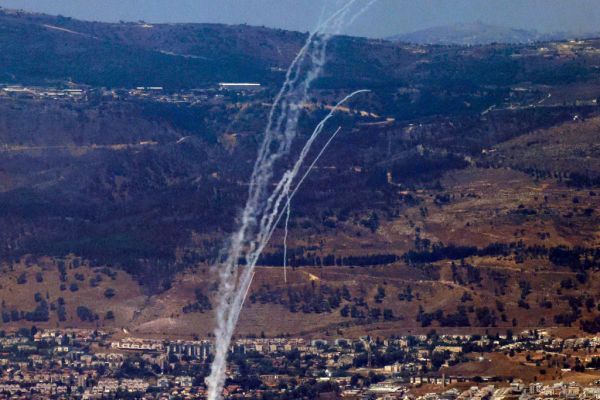

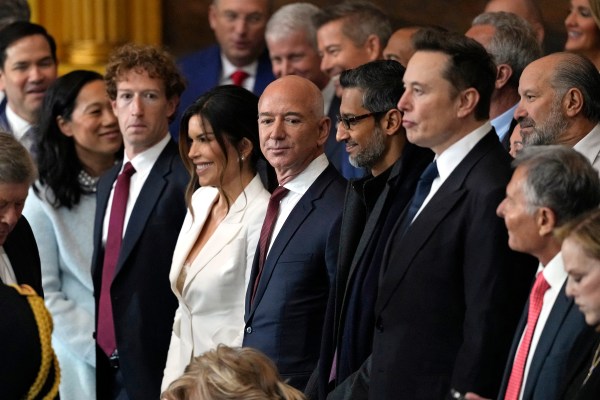



Please note that we at The Dispatch hold ourselves, our work, and our commenters to a higher standard than other places on the internet. We welcome comments that foster genuine debate or discussion—including comments critical of us or our work—but responses that include ad hominem attacks on fellow Dispatch members or are intended to stoke fear and anger may be moderated.
With your membership, you only have the ability to comment on The Morning Dispatch articles. Consider upgrading to join the conversation everywhere.